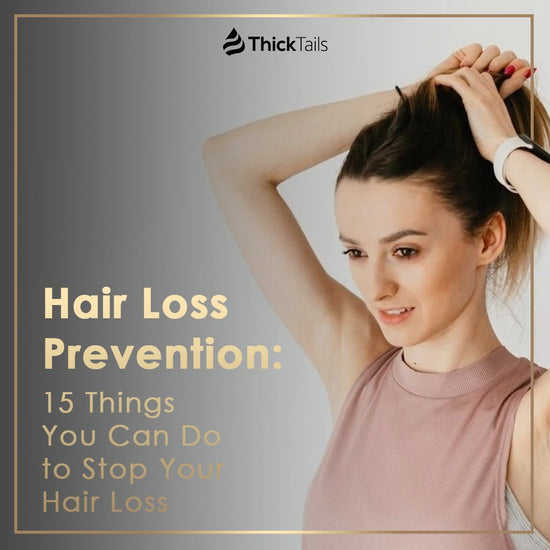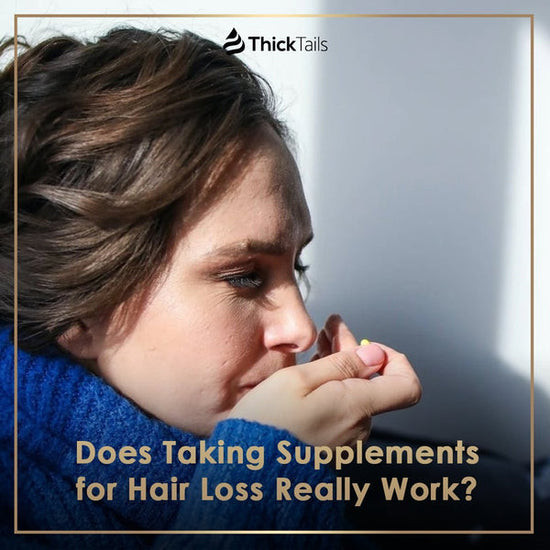For many women, hair loss is one of the most devastating parts of chemotherapy. These treatments are often necessary for cancer patients in order to reduce or eliminate their tumors, but the side-effect of baldness can take a heavy emotional toll. Unfortunately, some types of hormonal imbalances – including menopause, stress, and postpartum recovery – can cause similar effects on our bodies with little to no warning. If you find yourself facing this problem due to a medical condition other than chemotherapy or if it’s become too much to bear without treatment options available, there are things you can do today to cope with hair loss during any kind of experience.
Understand the causes of hair loss during chemotherapy

Hair loss during chemotherapy can be a concerning and distressing side effect of cancer treatment. Chemotherapy attacks and kills cancer cells, but unfortunately, it can also harm healthy cells, including hair follicles. Understanding the causes of hair loss during chemotherapy can help you to anticipate and prepare for it. While hair loss may be inevitable, it is reassuring to know that it is only temporary and that hair usually grows back once chemotherapy treatment ends. Knowing what to expect can help alleviate some of the anxiety associated with hair loss and allow you to focus on your recovery.
Research and familiarize yourself with the different types of hair loss treatments available
If you're looking for ways to combat hair loss, you'll be happy to know that there are numerous treatments available. One option is to take hair vitamins, which can help to promote healthy hair growth. Another choice is to use a serum that contains ingredients like biotin and antioxidants to protect your hair and prevent breakage. Additionally, there are special shampoos and conditioners that are designed to nourish and rejuvenate your hair from the roots to the tips. By researching and familiarizing yourself with these different types of hair loss treatments, you can find the one that's right for you and achieve the luscious locks you desire.
Consider alternative styles for your hair such as wigs, scarves, and hats
Are you tired of the same old hairstyle? Why not try something new and experiment with alternative styles? Wigs, scarves, and hats are great options to switch up your look without the commitment of a haircut or dye job. Wigs have come a long way and now come in a variety of styles and colors to choose from. Scarves and hats not only add a fashionable touch to your outfit but can also disguise a bad hair day. Plus, they provide protection from the sun and cold weather. So the next time you're feeling adventurous, consider trying out one of these alternative hairstyles.
Talk to your healthcare provider about the possibility of using medications to prevent hair loss
Losing hair can be a distressing experience, but speaking to your healthcare provider about the possibility of using medication to prevent hair loss can be a positive step forward. While some people may choose to take hair vitamins or supplements as an alternative, it's worth talking with your provider about the safe and effective options available. They can help you determine the best course of action based on your individual needs and medical history. By taking this proactive approach, you can feel empowered and confident in addressing hair loss and finding a solution that works for you.
Take care of yourself - maintain a healthy diet and get plenty of rest
Maintaining a healthy diet and getting plenty of rest can sometimes be overlooked in our busy lives, but it's crucial to take care of ourselves. A nutritious diet provides us with the essential nutrients needed to keep our bodies functioning at their best. Skipping meals or indulging in junk food can have negative effects on our physical and mental wellbeing. In the same vein, getting enough sleep helps us recharge and repair our bodies, allowing us to face the day with renewed energy. While it may be tempting to prioritize work or social activities over taking care of ourselves, remember that our health is a top priority. By prioritizing self-care, we can improve our overall quality of life and set ourselves up for long-term success.
Find support from loved ones who understand what you’re going through

When you're going through a difficult time, the support of loved ones can make all the difference. It can be incredibly helpful to have people in your life who understand what you're going through and can offer comfort and empathy. It's important to seek out support from those who truly understand your situation. Whether you're dealing with a health issue, a job loss, or the end of a relationship, having people you can talk to who have been through similar experiences can be invaluable. These loved ones can offer not only emotional support, but practical advice and a listening ear. When you're going through a tough time, don't hesitate to lean on the people you trust and who understand your struggles.
It’s not required that you have a luxurious mane of hair, but it can be a very emotional experience for those who may have had previously luscious locks. That being said, there are ways to cope and manage the effects of hair loss due to chemotherapy treatments. Understanding the causes of hair loss can make this situation more manageable, and doing research on different treatments can help give you insight on potential solutions. Further, consider alternative styles that may be available such as wigs, scarves or hats which could give you a confidence boost in the face of adversity. Ultimately, the best thing during this time is to take care of yourself – eating nutrient-rich foods and getting plenty of rest are key components in managing stress levels throughout chemotherapy treatments. Lastly, reach out and find support from family and friends who understand what you’re going through as it can make all the difference in your recovery process.











